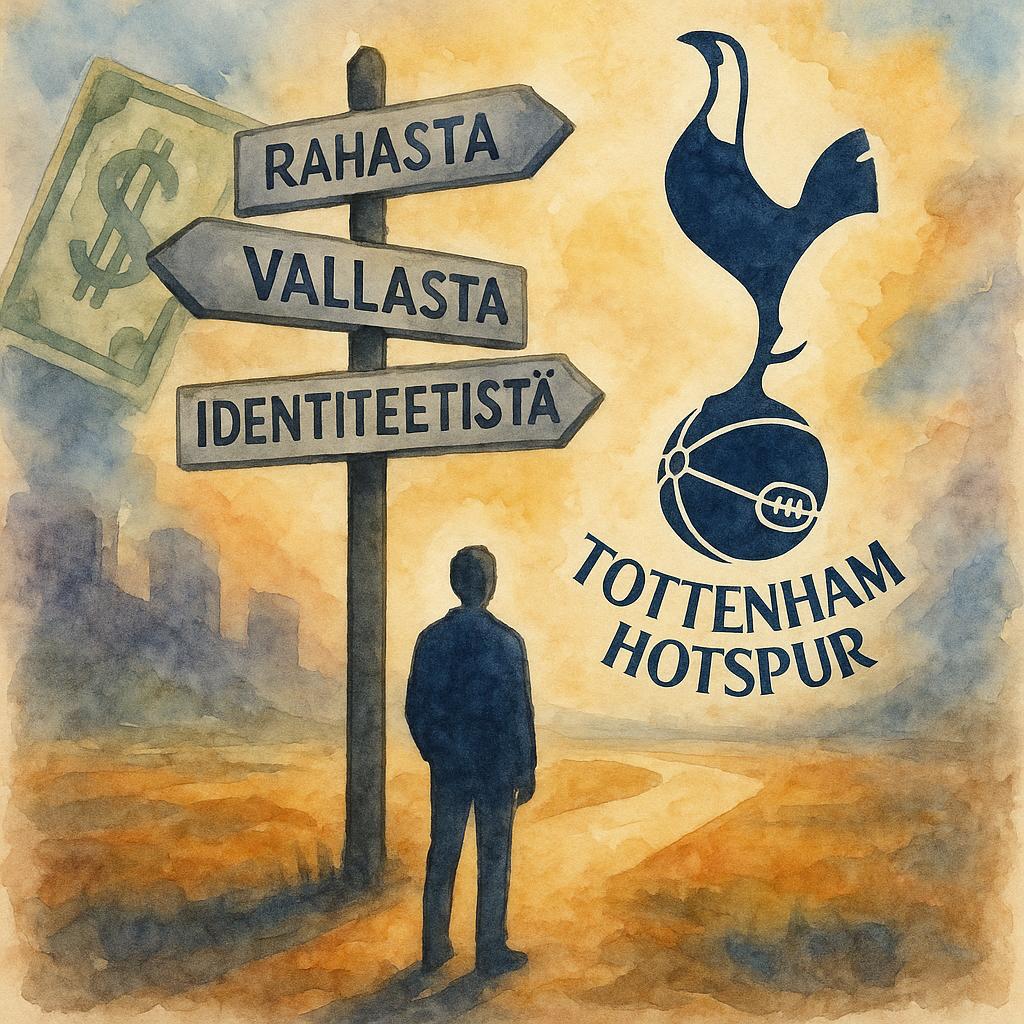Tottenham Hotspur risteyksessä rahasta vallasta ja identiteetistä – mitä seuraava askel paljastaa
On a damp North London evening, the echoes of rumor feel just as loud as the chants that bounce off the sweeping tiers of the Tottenham Hotspur Stadium. Outside the pubs around Seven Sisters, fans exchange theories with the same intensity they once reserved for tactics and transfers: who truly calls the shots at Spurs now?
Tottenham Hotspur has always lived in a space between longing and ambition. This is more than just another football club; it’s a cultural landmark, a story carried down generations in white shirts and restless expectation. But somewhere along the line, the focus has drifted. The drama unfolding isn’t just about football, but about wealth, ownership, and the tug-of-war for identity.
The Levy Shift
For over two decades, Daniel Levy stood as a near-untouchable figure. He brokered monumental sponsorships, constructed one of the most advanced stadiums in the world, and transformed Tottenham into a financial juggernaut. Yet, as Levy gradually stepped back, a void opened in the hierarchy. In football, voids do not last long. They fill quickly—with speculation, rumor, and whispers of power plays.
Is Tottenham For Sale?
That question became the heart of the noise. Reports suggested serious bids from across the Atlantic, including American investors and NFL-affiliated groups. The *Guardian* reported at least two proposals had been rejected outright, while Amanda Staveley’s name inevitably appeared among the whispers, even as her camp denied involvement. Denials rarely quiet fans. Instead, they feed suspicion.
Eventually, the club intervened. Tottenham Hotspur released a sharp, uncluttered statement simply declaring: “We are not for sale.” That clarity was meant to silence the storm, but in football, statements often inspire more speculation than certainty.
Identity Beyond Business
More important than balance sheets is Spurs’ identity—a balance they’ve struggled with since leaving behind White Hart Lane for their gleaming, futuristic arena. Supporters recognize Levy’s financial genius but wrestle with the absence of major trophies. To them, profits mean little without parades, and rumors of a sale strike nerves because they touch the soul of what the club represents.
- White Hart Lane symbolized heart and tradition.
- The new stadium signals ambition and global relevance.
- The question remains: where do the trophies fit in?
The American Dimension
The brilliance of Tottenham’s stadium lies in its duality: not just a fortress for Premier League football, but a ready-made venue for the NFL. In fact, it was built with American games in mind. That versatility makes Spurs an irresistible prospect for U.S. investors envisioning a multi-sport, multi-entertainment empire. For fans, it’s exhilarating and alarming in equal measure. Global expansion is a prize, but does it come at the cost of local identity?
A Public Line in the Sand
By insisting “not for sale,” Tottenham projected defiance, a sense of permanence. Yet football history—especially in modern England—tells us permanence is a myth. Ownerships shift. Billionaire interest rarely disappears. Even when clubs declare loyalty to the past, change often arrives faster than expected.
Spurs, with their location, infrastructure, and brand, remain a treasure on the market stage, even if officially unavailable. And today, the Premier League is as much a financial battleground as a sporting contest.
What Lies Ahead?
For now, the gates stay closed. But supporters know this is not the end of the saga. Whether in months or years, the debate over ownership will flare again. There’s too much at stake, too much global interest circling North London’s shining colosseum.
- Tottenham’s stadium and brand remain irresistible to international investors.
- Supporters remain loyal but cautious, wary of commercialization overtaking tradition.
- The ultimate question lingers: will financial clout finally deliver footballing triumphs?
For now, Tottenham Hotspur stands firm, independent, and loudly committed to its history. Yet the truth of modern football looms large—loyalty bends under billions, and promises built today can unravel tomorrow. The official word is “not for sale,” but the story is still unfolding, written in whispers far beyond the pitch.
